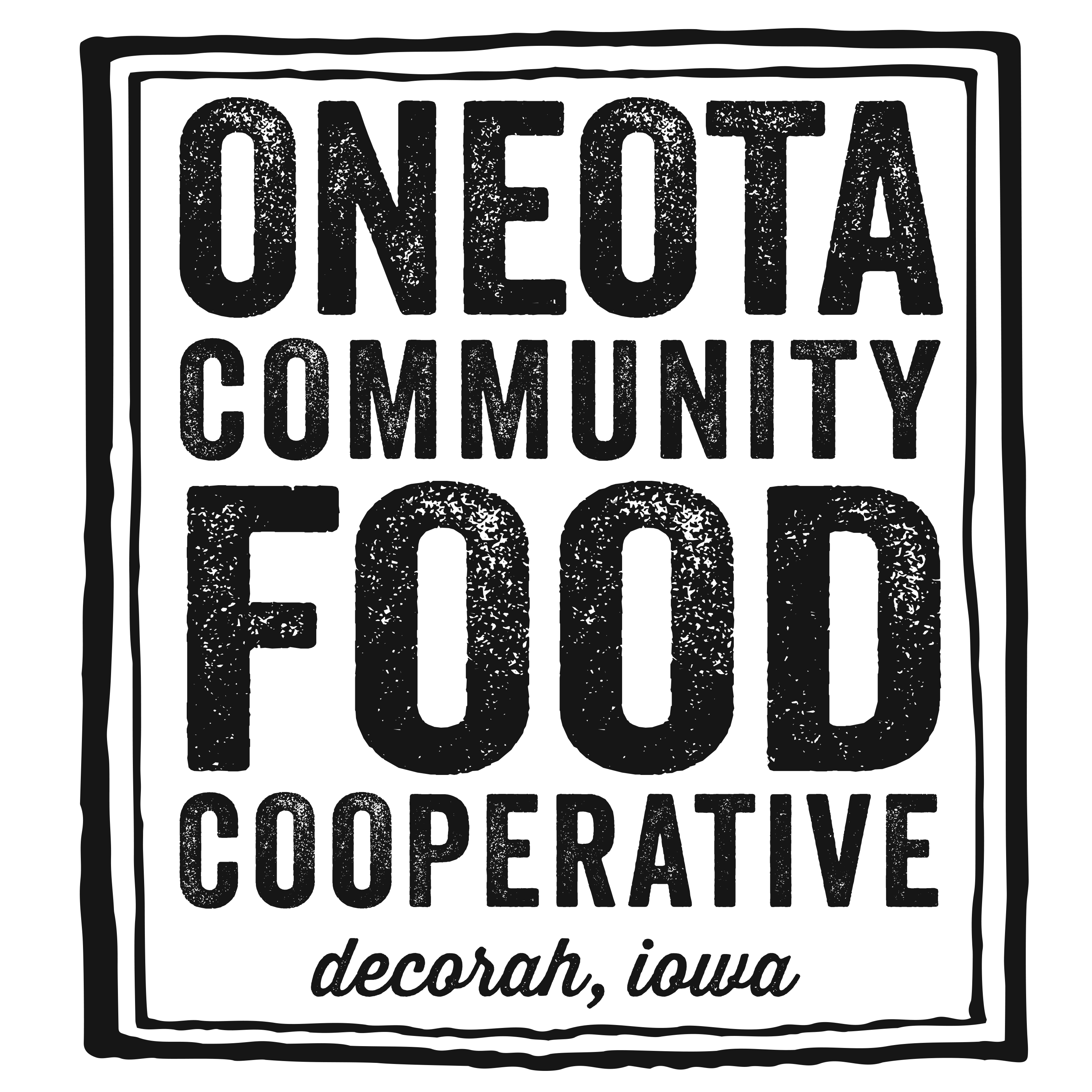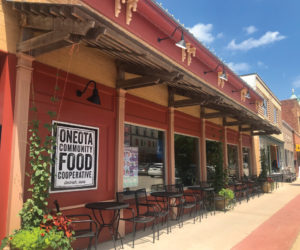By David Lester, General Manager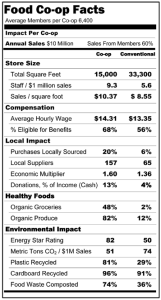
In the last edition of The Scoop I wrote an article asking member/owners to think about what growth means for our Co-op. The response was mostly positive with a few questions like, “Are we growing for growth’s sake?” and “Are we trying to open a new store location already?” These are good questions to ask because we expect more from our Co-op when it comes to growth and being profitable. We have heard stories about corporate greed and misuse of profits by businesses and it makes the discussion about growth a difficult one. I would argue that Co-ops are set up for success when it comes to growth because of their sustainable and dynamic business model.
A friend of mine and fellow General Manager, Dan Gilotte, at Wheatsville Food Co-op in Austin, TX believes that if co-ops can focus on deliberate growth of their store and business model, they will have “more Co-op economy, more local/organic/sustainable food, and more happy people.” I love this statement because it describes healthy growth. One result of growth for our Co-op is a healthier, happier community.
The board, management team, staff and I have focused our energy lately on these three Ends policies:
• a retail source for food and other products that, to the greatest extent possible, are organic,
sustainably produced, locally grown and/or processed and affordable.
• a business that encourages the expansion of sustainably grown local food sources.
• a community that is educated about food and other products that are healthy for people and 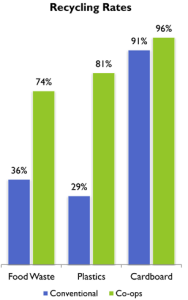
the environment.
We are looking for low-cost ways to achieve these focused Ends policies and we have received some great ideas from the latest Biennial Member/Customer Store Survey. We hear that our membership would like to see more of an effort to help local producers transition to organic farming practices and create more opportunities for locally grown and organic products in our store. Members would also like to see more local, fresh meat options, more educational offerings expanded outside the Decorah area and find more ways for us to expand accessibility for low-income families and individuals. These are just a few of the more popular ideas we intend to address in the near future.
There are some nice visual images and data in this edition of The Scoop and throughout our store which tell the story of how Co-ops across the country better serve their communities and environment.* Some of the best examples are:
• Co-ops source 20% of their products locally compared
to 6% at conventional grocery stores.
• Organics as a percentage of produce sales is 82% at
co-ops compared to 12% at conventional stores.
• Organics as a percentage of all grocery sales averages
48% in co-ops compared to 2% at conventional stores.
•Co-ops recycle 81% of their plastics and 74% of all food
waste compared to 29% and 36%, respectively, at conventional stores.
• Co-ops have an Energy Star average score of 82/100 for their buildings compared to 50/100
for conventional stores. (Oneota’s is 98/100)
• For every $1,000 a shopper spends at their local food co-op, $1,604 in economic activity is
generated in their local economy—$239 more than if they had spent that same $1,000 at a
conventional grocer.
Co-ops are focused on providing their members the best products and services and bettering their communities 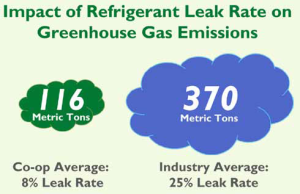 through their business practices. We all know that shopping locally benefits our local economy. Spending that dollar with local businesses who have sustainable business practices in place also have big impacts our environment and quality of life in our community. When we look at how growing our Co-op can strengthen our local economy and make our community a healthier place to live, it makes sense. When we see that we are a part of an even larger movement of many co-op communities across the country approaching growth the
through their business practices. We all know that shopping locally benefits our local economy. Spending that dollar with local businesses who have sustainable business practices in place also have big impacts our environment and quality of life in our community. When we look at how growing our Co-op can strengthen our local economy and make our community a healthier place to live, it makes sense. When we see that we are a part of an even larger movement of many co-op communities across the country approaching growth the
same way, it becomes more possible to envision a happier world on the horizon.
*The study behind this report was commissioned by National Cooperative Grocers Association (NCGA). NCGA partnered with the ICA Group—a national not-for-profit consulting firm with expertise in cooperatives, economic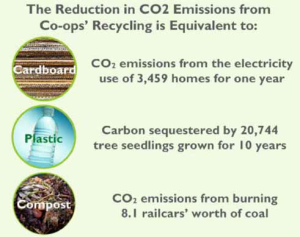 development and business research.
development and business research.
